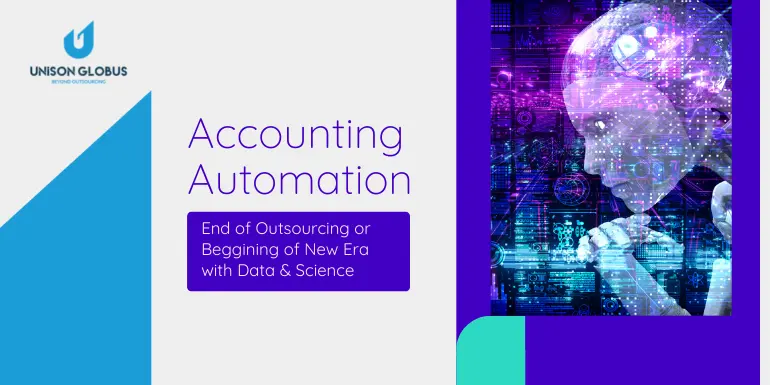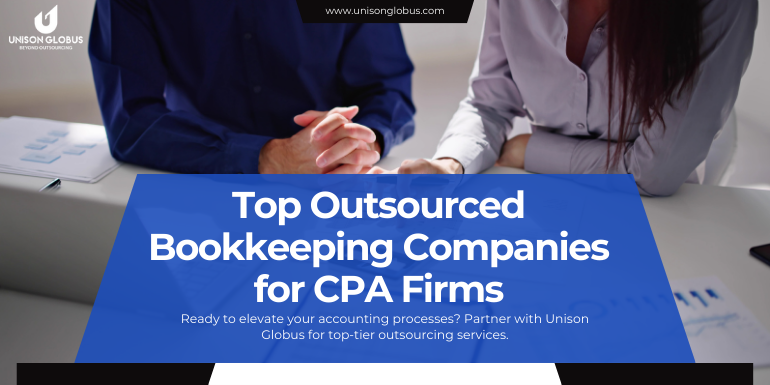Cannabis Accounting
As cannabis bookkeepers, numerous new cannabis entrepreneurs have endeavored to get their permits and, however, need a lot of help with the real running of their business.
If you are handling calls from a cannabis accounting person, you might have found that they have a composed field-tested strategy. Though, they don’t constantly see how to utilize it.
They’re swimming around in their funds at different times without understanding how to expand their benefit, settle proper taxes, and read what the numbers in their books mean for their general productivity.
Since so many new cannabis entrepreneurs have lots of inquiries, you can assist planned clients with understanding the methods in which bookkeeping experts can uphold their organizations.
Services for Cannabis Businesses
You might require more than one lawyer to guarantee that your cannabis accounting business complies with relevant guidelines.
Additionally, since many cannabis guidelines are fluid, you want to have a lawyer to keep steady over the latest guidelines. For instance, new bundling guidelines will become real.
There are numerous things on dispensary retires that will require new bundling to be agreeable with these new guidelines.
You might need a patent lawyer if you’ve made an item where you wish to safeguard your intellectual property (IP).
You might require a preliminary lawyer if a claim arises from a client, a contender, or a displeased representative. Request that all workers sign a compulsory intervention provision in their agreement before beginning business.
That will save your time and cash if there is an issue eventually. Recruiting a legal group with great experience with the cannabis business is an unquestionable requirement.
Bookkeeping Services for Cannabis Businesses
As you might know, consistency is a basic variable in being permitted to keep working legitimately in states. Maintaining accurate records of each cost and exchange is important in your business, yet considerably more so with a cannabis business.
Getting a good public bookkeeper who has worked with cannabis sector customers for a long time will help you stay on track and avoid overpaying your taxes.
A bookkeeper can also do an internal review which will permit a cannabis entrepreneur to identify and examine extortion, protect organization resources, and guarantee that financial reporting is ideal and exact.
Cannabis Consulting Services
Many cannabis organizations are going from development to assembling to dispensaries. These organizations can profit from employing cannabis business advisers.
An experienced cannabis business specialist can assist you with the application interaction, audit, and refine your marketable strategy.
Introduce you to potential key cannabis speculation accomplices and other potential colleagues, including other auxiliary service providers, and guarantee that you are following the right steps in the exact order to expand your opportunities for progress.
Consulting firms will additionally inform you on the best techniques for organizing your business to maximize tax productivity and safeguard your resources.
There are many sorts of cannabis specialists. Some specialize in assisting cultivators with accomplishing the most extreme yield while limiting misfortunes. Others specialize in raising funds or shipping a certain item.
Some cannabis consulting organizations offer a spectrum of services from seed to sale.
Recruiting the correct cannabis expert might increase your chances of accepting your cannabis license because they have experience going through the licensure procedure with various clientele.
Eventually, recruiting the right cannabis advisor will save your time and cash. It’s critical to vet likely advisors. Ask any cannabis advisors you consider employing to give references and tributes from previous and current clients.
Real Estate Professional
What sort of cannabis bookkeeping might you want to begin? The land is essential.
You will require either an indoor or outside space to develop weed. Also, you will require space if you plan to work in an extraction facility, fabricating facility, or testing lab. To start a dispensary, you’ll need retail space.
Recruiting an experienced land broker can save you valuable hours you could’ve spent looking for the right land for your business.
You can have an extraordinary product, a good team, more money, sophisticated extraction procedures, and a strong brand for a successful business.
You don’t have anything without real estate zoned appropriately and agreeable to state regulations.
Instructions to begin a Cannabis bookkeeping business
When you are going to start your business, you need to consider all the following steps:
- Pick an Ideal Niche to Focus on For Business
- Make a unique plan for your business
- Characterize your brand identity
- Research your business competitors
Essential legal necessities
Regardless sort of business you’re keen on, there are fundamental legal necessities you should follow. Although these may vary depending on your area and industry, a few common needs are here.
- Business arrangement: Incorporating your business or framing an LLC with the state is significant because it safeguards your resources from any possible obligations and liabilities that emerge from your business.
- Tax ID number: This is your government tax recognizable proof number, additionally called an employer ID number (EIN). The IRS involves this number to distinguish your business from anything connected with taxes.
- General Business License: This license, re-established every year, will permit you to work in your city or area legitimately.
- DBA Filing: Your (DBA)Doing Business As will permit you to direct business utilizing a name that is not the same as the name remembered for your incorporation papers.
- Sales Tax Permit: This tax is suitable only for retailers of all types of products or administrations, and they can use it both online and offline. You want this grant if you need to gather state and local sales taxes.
- Permits: Different organizations need varying licenses. For instance, you will require one with the wellbeing department if your business requires food arrangements. Organizations may also require licenses for signage, zoning, and land use.
A home-based or online business frequently requires a similar level of consistency as a traditional blocks and-mortar business foundation.
Common Accounting Problems That Cannabis Businesses Face
There are now $52 billion in sales in the cannabis industry. The number of people who want to use cannabis for medicine and fun is growing.
This is why now is the perfect moment to start a cannabis business. However, accounting is a significant obstacle for budding cannabis business owners.
Accounting for cannabis is done differently than accounting for a traditional business. The marijuana business is still pretty new.
This makes keeping track of money even more of a pain. But it’s best to find these problems as soon as possible.
Here are some of the most typical accounting challenges faced by cannabis business owners.
Difficulty getting a bank account for a business
It’s not easy to legalize cannabis. Some states let people use cannabis in any way they want, while others are even stricter about CBD use.
Opening a bank account for cannabis business can be difficult depending on the state. This also implies you have limited options for obtaining funds, such as company loans.
What ideas do you have?
Many businesses that sell cannabis feel like they can only keep cash on hand. Find out what else you can do first. Choose a local bank or a credit union instead of a federal bank account.
The fact that marijuana isn’t federally legal makes it hard for big banks to open accounts for cannabis businesses. But state-wide banks might be willing to open an account for you.
Not tracking your sales
More money is being made in the marijuana business. But this doesn’t mean anything if you don’t keep accurate sales records. It’s important to know this if you want to know if you’re making or losing money.
You can get help from a cannabis accountant, which is good news. They will keep track of your sales and business costs and advise you on how to save money for your business and which deductions you can or cannot use for your cannabis business.
Performing cannabis tax laws
7 states tax the sale of cannabis. This makes it more difficult to determine how to tax cannabis. Even though federal taxation is still being discussed, marijuana is still a Schedule I drug, which means that the IRS keeps an eye on cannabis businesses.
A cannabis accountant should be consulted. An accountant can verify tax documents and can prevent government fines and audits.
More likely to be audited
As was already said, the federal government is still debating how to tax cannabis. Tax audits are more likely to happen at businesses that sell cannabis.
This is why you should work with a cannabis accountant. They know the most common reasons for cannabis tax audits and can help you avoid making these mistakes when you file.
Neglecting accounting software
Everything is digital, including the accounting and finance software for your business.
This software lets you put in your financial information, make financial documents, and better manage your cash flow. Still don’t have enough time to do your books?
Using the software, an accountant checks that your financial and tax information is correct. But there is more financial software that you can use in your everyday business tasks, like a POS system that has been updated.
Difficulty finding payroll professionals and bookkeepers
Your accountant will not be the only financial professional considered by your cannabis business.
Every business needs a bookkeeper, people who do payroll, people who handle merchant processing, and other people in this group. Even though people are becoming more aware of marijuana, many businesses still don’t want anything to do with the cannabis industry.
A cannabis accountant will help with this. If the accountant cannot assist you, they can refer you to other financial professionals eager to work with and specialize in marijuana businesses.
Protecting your finances and inventory
Even though crime and violence related to drugs are going down since marijuana is legal, this doesn’t protect marijuana businesses, especially dispensaries.
If they can’t find a bank, many pot shops have only to accept cash, which puts them at risk of losing the money they need. Robberies also force dispensaries to give up their money and marijuana products. This hurts not only your current profits but also the profits you’ll make in the future.
This is why it is so essential to protect not only your money but also your stock. A cannabis accountant can tell you how to keep your money safe, especially if your dispensary only accepts cash.
Few tax breaks for business
Tax advantages for businesses are beneficial, but many cannabis businesses may only deduct a limited amount.
IRS limits when a cannabis business can deduct the cost of its supplied goods.
But the good news is that a cannabis accountant can help you learn about business tax deductions and other ways to save money on your taxes.
Unforeseen expenses
Starting a business in the cannabis industry costs more than usual. Prices for these can be anywhere from $250,000 to $750,000. But you have to pay more.
Like any other business, the cannabis business could lose money because of unexpected costs, such as a rise in the price of goods or even a lawsuit.
A cannabis accountant can help you save money and keep extra cash on hand in case of these things. Additionally, improved cash management will help you earn more money over time.
How Hard it is for Cannabis Companies to Set up Their Business Structures
What kind of corporate structure should I choose? This is the first question business owner of cannabis should consider. Should you create a “C-Corporation”? An S-Corporation? This is a complex subject, and the answer is unique to each company’s objectives and risk profile.
For different reasons, different business structures are desirable. A C-Corporation has a complicated filing process, and shareholders may have to pay taxes on what they got from the company.
This is a big downside, but C-Corporations have become popular structures for Cannabis businesses because they reduce risk.
A C-Corporation makes the business a separate legal entity from its shareholders. It also has stronger protections against overall debt, which gives shareholders more protection than LLCs can.
On the other hand, only the shareholders of an S-Corporation are taxed, not the business as a whole. This puts more risk on the shareholders, in any case. Any costs that can’t be deducted (remember code 471) can be passed on to shareholders.
Which does the best job for you? It’s an important question, and a quick guide can’t give a simple answer to it. It is advisable to sit down with investors and a company attorney to discuss the advantages and cons and how they will impact your firm’s future.
Thus, they can assist you in selecting a structure that meets your current and future demands.
Controls and corporate governance
We know business owners can’t wait to run their businesses and sell their products, which is the fun part. Don’t act too quickly. There’s much more to set up before you start making daily sales.
Even though corporate governance is primarily concerned with accounting, business owners should at least be familiar with it to guarantee that their internal controls and standard operating procedures are adhered to.
Simply put, corporate governance is the business’s philosophy and set of rules for how to act ethically. This is performed to prevent fraud and other illicit acts.
They say how a business’s finances will be handled and to what standard. This is more than a policy or talking point; it is the foundation that prevents errors, omissions, and money from leaking out the door.
Along with the overall corporate governance standards for a Cannabis business, successful businesses also need internal controls. Consider corporate governance as the “what” and internal controls as the “how” of your actions.
In practice, your corporate governance may stipulate that your organization will close its books on a given date, and your internal controls may take the form of a comprehensive checklist of the measures you will take to reach that goal.
Your company’s objective may be to maintain accurate records; however, internal controls, such as a monthly sales cut-off to ensure transactions are placed in the correct accounting period may assist you in achieving this objective. It is not as easy as simply being strict.
Having protocols will prepare you for any audits, investors, lenders, or exits.
Additionally, it prevents fraud and theft. The IRS will have a field day auditing you if you don’t have tight controls in place that are always followed.
As a business owner, you can ensure your business is safe by helping set up and enforce the controls and standard operating procedures (SOPs) that will keep you in compliance.
Cannabis cultivators and business owners who are just getting started shouldn’t scoff at the horrific dispensary case studies, but they shouldn’t live in fear. If you know what is expected and allowed of Cannabis businesses. Then, get ready for it, and your business will run smoothly from the start.
Working with a Cannabis accountant who is not only knowledgeable about the sector but also about cultivation businesses and can guide you through the intricate procedure will give you a head start.
FAQs
Q1. Will any accounting firm accept my marijuana company as a client?
Due to the increased risks associated with the cannabis sector, many conventional accounting companies refuse to work with cannabis enterprises. Utilize a specialized cannabis accountant that is well-versed in compliance, payroll, and bookkeeping for cannabis firms.
Q2. Do you currently represent cannabis-related businesses? How long have you worked in this field?
The cannabis sector is not normal and functions differently than most other industries. Businesses that have been in the cannabis industry for several years and have a diverse clientele have more expertise in navigating the problems and obstacles inherent to a cannabis business.
Regarding compliance, it is crucial to choose a cannabis accountant with experience, as the rules and regulations are constantly changing. Frequently, compliance concerns can result in substantial fines from the IRS; therefore, selecting an industry expert will prevent you from these consequences.
Q3. Why is it essential for businesses that sell cannabis to track their income and costs carefully?
Some businesses that sell cannabis, like dispensaries, only take cash. Because of this, inadequate cash flow management could be the death of your business.
Unison Globus can help you make a cash flow projection. Also, it can help develop good ways to get paid, collect money, and more.
Q4. Do businesses that deal in marijuana have unique banking needs?
Getting a bank account for a business that deals with cannabis can be more challenging than in other fields. This can be different in each state.
Before giving you money, a bank or other lender will probably want to know more about your business.
You will have a better chance of getting a loan if you show a detailed business plan that includes how much money you expect to make and spend.
Q5. What does my business have to do with IRS Code 280E?
Section 280E of the Internal Revenue Code (IRC) says that you can’t take deductions or credits for the money you paid or spent on trafficking controlled substances (as defined by Schedules I and II of the Controlled Substances Act) in a way that is against federal or state law.
Q6. Why should I hire an accountant for cannabis?
Businesses in any industry need to have an accountant, but the cannabis industry needs it even more.
Constantly shifting state rules and regulations make it difficult for dispensaries and cannabis businesses to maintain a legitimate financial structure. This is especially true if the company operates in various states with varying legal requirements.
Q7. How is payroll different for businesses that deal with cannabis?
The cannabis business is complicated in many ways. The payroll of the cannabis business is one of them.
For state regulations, it is important to keep accurate records. If you try to do your payroll and don’t record everything perfectly, you can have a lot of money.
If you run a business with multiple locations and many employees, payroll will only get harder, so you should hire someone else to do it before you lose control.
Bottom line – Cannabis Accounting
If you are beginning your Cannabis accountant business, you need to know about the service needs for a successful business. Check out here accounting and bookkeeping services here.

 [gtranslate]
[gtranslate] 
















